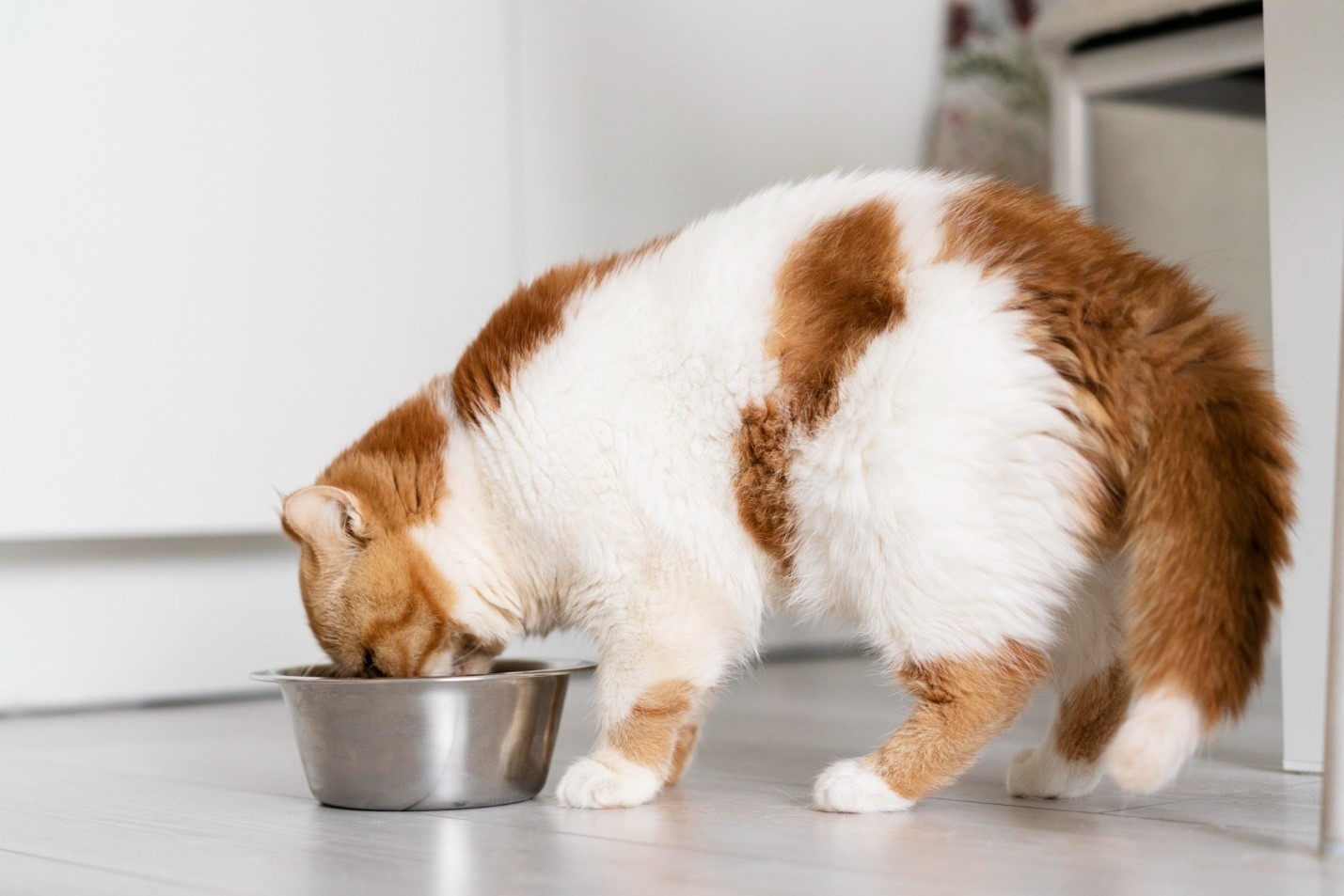Your Guide to Cat Digestion
Like humans, cats need to follow a healthy diet with nutrients for good digestive health. As a cat owner, you are probably aware that an occasional episode of upset stomach is common among some cats. Some of these issues arise from foods that aren’t suited to their dietary needs or hairball in their digestive system. But at what point do symptoms of digestive upset become a concern and how many hairballs are too many?
The key to ensuring that your cat’s digestive system is working efficiently is to keep an eye on the frequency of digestive issues and vomiting and find solutions for the problems immediately. Learn more about cat digestion and potential health concerns below.
Cat Stomach Anatomy
Cats have a simple stomach structure, just like humans. Once a cat’s stomach is filled with food, it will digest and empty within a few hours as it moves into the small intestine. A cat’s stomach sends signals to the brain, stimulating a hunger response approximately eight to ten hours after a meal.
A cat’s digestive system absorbs and digests food and eliminates solid wastes from the body. The process includes the mouth, teeth, salivary glands, esophagus and stomach, intestine, pancreas, liver, and gallbladder.
Common Cat Digestive Issues
Many cats experience digestive problems throughout their lifetime, resulting in various symptoms, such as vomiting, digestive upset, abdominal pain, weight loss, and loss of appetite. The good news is that you can safely treat your cat’s digestive issues by looking for warning signs and identifying common triggers.
Hairballs
If you’re a cat owner, you have probably woken up to the sound of your cat gagging due to the ingestion of hairballs. Hairballs are bits of vomit containing a significant amount of hair that comes out of a cat’s system after they accidentally ingest hair when grooming themselves.
Cats have the instinct to groom themselves by licking their bodies, and they typically spend between 30 and 50 percent of their day grooming themselves. So, it can be challenging to prevent hairballs. However, you can reduce hairballs by brushing your cat frequently. The more hair you get off, the less they will need to groom themselves.
Worms or Parasites
Both indoor and outdoor cats can encounter worms or parasites. Cats typically get worms by coming into contact with eggs, fleas, or infected particles in feces. The most common worms and parasites found in cats are hookworms, roundworms, and tapeworms. Symptoms of intestinal parasites involve digestive upset, weight loss, vomiting, or worms in stool or vomit.
The best way to treat worms or parasites in cats is with deworming medication. However, you must consult a vet to find a suitable medication.
Food
Some ingredients in the food you feed your feline friend may not suit their stomach, resulting in digestive problems. If your cat’s diet seems to be affecting its digestive health, it may be time to consider switching to a raw diet. There are many options available when choosing cat food for digestive concerns. A great option is Bold By Nature raw cat food, as It contains minimal ingredients, making it easier for your cat to digest and reducing digestive problems.
Inflammatory bowel disease (IBD)
Feline inflammatory bowel disease (IBD) is a syndrome in which a cat’s gastrointestinal (GI) tract becomes chronically irritated and inflamed. IBD primarily affects middle-aged and older cats, but felines of any age may occasionally develop it. Signs of feline IBD can vary based on severity, but the most common symptoms include vomiting, digestive upset, weight loss, loss of appetite, and lethargy.
It’s important to consult your furry friend’s vet to find the most effective solution for IBD, which typically involves deworming, vitamin B12, other medication, and a change in diet. The vet may recommend switching up your cat’s diet to find a more suitable diet with minimal ingredients.
Maintaining Cat Digestive Health
You want your feline friend to thrive and live a healthy life, which involves a well-functioning digestive system. The key to the best cat digestive health is the identification of potential diseases and a healthy diet.
Read More: A Guide to Designer Radiator Installation, Maintenance and Energy Efficiency

